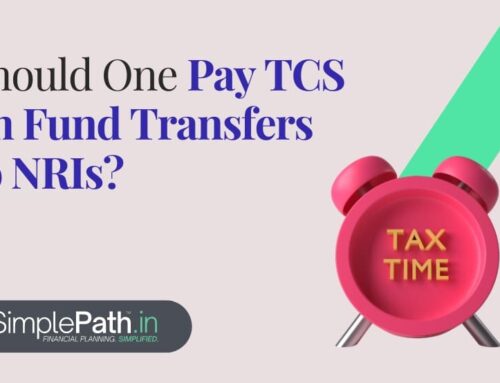
Mostly, NRIs are asking one of these two questions – “What are the best NRI investment opportunities in India?” or “Where to invest in India in the new financial year?”
Rather, the question should start with -
“What are my financial goals and how can I achieve them with the right investment in India?”
Being a developing country with a strong economy and robust growth, India presents dynamic opportunities for NRIs who are seeking investment options. Capitalising on this momentum is a great opportunity to grow your investments and potentially secure your future, especially if you plan to retire here.
There are plenty of options in India to invest your money in, but the right way to select the best investment option to achieve your financial goal(s) is by considering it’s returns on investment (high, medium and low), investment term (long, medium, short) and risk property (high, medium and low).
NRI Investment Opportunities in India
I will start by sorting them in terms of Returns on Investment, and I will also include the investment term and risk property.
NRI Investment Opportunities in India with High Returns
Returns are important when we need to achieve certain financial goals. However one should know that high returns usually come with high risk and (in some cases) with higher capital requirements.

1. Equity Shares
Investment in equity shares is also known as direct equity investment. If done with proper research and knowledge, equity investments can lead to very high capital gains. But it should be understood that both growth and returns from the stock market are highly volatile. Ill-informed investment with poor research can lead to losses. Direct equity is probably one of the NRI investment options in India that has high-growth potential, but it comes with proportionate risk. There are various stock trading apps that you can use to help you with investing in stocks. Click here to find the top 10 stock trading apps of India in 2024.
Mandatory Requirements:
An NRI can trade in the Indian stock market under the PINS. Please note that NRIs are not allowed to do day trading. You can only conduct delivery-based trades (where you take delivery of securities in your demat account and keep them for more than one day) are permitted for Indian equities.
NRIs need to open a Non-Resident External (NRE) account under the Portfolio Investment NRI Scheme (PINS) or use their Non-Resident Ordinary (NRO) account for routing their investments. To do so, NRIs need to approach designated branches of any authorised dealer (e.g., a bank) authorised by the Reserve Bank of India (RBI) to administer the PINS. Please note, that once you designate your NRE bank account as a PINS account, you cannot use that account for other banking-related transactions. While previously, NRIs also needed an NRO PINS account, according to the recent RBI guidelines, this is no longer needed.
With this, Non-Resident Indians (NRIs) can invest in listed securities traded on recognised stock exchanges in India like the National Stock Exchange (NSE) and the Bombay Stock Exchange (BSE).
Risk:
Term of Investment:
Short term to long term. It is recommended to choose equity options for the long term as they are safer and can deliver better returns over the long term.
Taxation:
On direct equity investment in India, shares sold within 1 year of purchase will be taxed at 15% on capital gain, that is the profit made after selling the shares. If the NRI sells his/her shares after 1 year, the tax on capital gain is 10%.
2. Equity Mutual Funds
Depending on the risk profile, an NRI can invest in 100% equity funds, balanced funds, debt funds, liquid funds, and MIPs (MIPS are hybrid securities, combining features of preferred stock and corporate bonds).
Various mutual funds give returns and these can beat inflation in the long term. They are managed by professional financial analysts and investment advisors so they are less risky in comparison to direct stocks.
There are various options for investing in Mutual Funds. You can use SIPs (Systematic Investment Plans) for regular investments and SWPs (Systematic Withdrawl Plans) for regular withdrawals of the gains you have generated.
Limitations for NRIs:
Risk:
Term of Investment:
It is recommended to stay invested in mutual funds for the long term.
Taxation:

3. Unit Linked Insurance Plans (ULIP)
Depending on the risk profile, an NRI can invest in 100% equity funds, balanced funds, debt funds, liquid funds, conservative funds, etc.
ULIP are similar to mutual funds, except that they come with insurance cover of the investor.
There are various options for investing in ULIP. You can use SIPs (Systematic Investment Plans) for regular investments in annual, semi-annual, quarterly or monthly payment modes. ULIP also have SWPs (Systematic Withdrawl Plans) for regular withdrawals during the payout period that can last for the whole life. ULIP comes across as one of the NRI investment opportunities in India that has dual benefits – High Growth and Financial Protection.
Limitations for NRIs:
Risk:
Term of Investment:
It is recommended to stay invested in ULIP for the long term.
Taxation:
Special Feature:

4. Real Estate
Exploring rental incomes through residential apartments or shops, or growth potential in land investments seems like a very lucrative investment option in India for NRIs. Rental income provides continuous income for many years. Selling the property at a good profit also provides the option to grow your wealth many folds.
Limitations for NRIs:
Risk:
Term of Investment:
Taxation:
You will be taxed on the capital gains you make, which is the amount that you get after subtracting the cost of acquiring (and repairing or improving) the asset from the sale value. These capital gains can be classified as short-term capital gains (STCG) or long-term capital gains (LTCG).
LTCG tax is applicable when a property is sold after 24 months of buying it (reduced from 36 months in Budget 2017).
STCG is taxed as per the income tax slab rates applicable to the individual.
Charges:

5. Pre IPO Funding
Pre-IPO companies are private businesses that are not currently listed but are aiming do so in the near future. NRIs must abide by the rules of the Foreign Exchange Management Act (FEMA) in order to invest in Pre-IPO companies. Without the intervention of any exchange, an NRI can invest in these pre-IPO companies. Pre-IPO Brokers such as ICICI Securities, Axis Capital, Kotak Securities, Edelweiss Financial Services and Motilal Oswal Securities enable the exchange of unlisted shares before the company gets list on the stock market. These shares might be listed at any time, and you could sell them for a profit.
Attractive returns are one of the primary reasons investors purchase unlisted shares. To entice investors, companies offer these shares at a discount.
Pre-IPO is one of the non-contemporary NRI investment opportunities in India, with immense potential for wealth growth.
Limitations for NRIs:
NRIs are permitted to make non-repatriation investments in unlisted shares in India. Only if they notify the RBI of the transaction, they can purchase shares on a repatriation basis.
Risk:
Term of Investment:
Taxation:
Long-Term Capital Gains: If you sell Pre-IPO shares after 2 years from purchase date, a 20% tax with indexation benefit will be levied. You dont have to pay GST or STT (Security Transaction Tax).
6. AIF (Alternative Investment Funds)
AIFs (Alternative Investment Funds) are SEBI-regulated privately pooled investment funds that invest in alternative asset classes such as private equity, venture capital, hedge funds, real estate, commodities, and derivatives.
Limitations for NRIs:
Risk:
Term of Investment:
Medium to Long Term.
Taxation:
NRI Investment Opportunities in India with Moderate Returns
1. REITs (Real Estate Investment Trusts)
REIT raises funds from a pool of investors, which gets invested in different properties; they could be residential units, offices, malls or warehouses. Through an REIT, even a small investor can buy shares in leading commercial real estate which in return generates income for the Investor in the form of dividends. REITs are NRI Investment Opportunities in India that many don’t come across as much as traditional real estate investment.
Limitations for NRIs:
NRIs are permitted to make non-repatriation investments in unlisted shares in India. Only if they notify the RBI of the transaction, they can purchase shares on a repatriation basis.
Risk:
Term of Investment:
Taxation:
Long-Term Capital Gains: If you sell Pre-IPO shares after 2 years from purchase date, a 20% tax with indexation benefit will be levied. You dont have to pay GST or STT (Security Transaction Tax).
2. Gold ETFs (Exchange-Traded Funds)
After attaining their NRI status, NRIs cannot invest in SGB (Sovereign Gold Bonds). There are certain restrictions on NRI investment in gold, primarily due to the Foreign Exchange Management Act (FEMA), 1999. In India, NRIs can invest in Gold ETFs. Gold ETF fund is an exchange-traded fund which acts as an option for real gold. They are traded on the stock exchange just like any other stock. When the Gold ETF is traded on the exchange, they are credited with the unit’s 99.5% of pure equivalent in cash.
They are units of gold that are issued and the ETF holds physical gold against it with a gold custodian bank.
Requirement for NRIs:
- To invest in Gold ETFs you need a PINS account.
- They must essentially acquire or sell in multiples of 1000 units.
Risk:
Term of Investment:
Taxation:
3. Structured Products
Structured Products are investment instruments created to offer customized risk-return profiles by combining traditional securities like stocks and bonds with derivatives. They are tailored to meet specific investment objectives of the NRI investor and provides exposure to diverse asset classes.
Offers potential for enhanced returns through derivatives.
Risk:
Term of Investment:
Taxation:
4. Guaranteed Income Insurance Plans
Guaranteed Income Insurance Plans are insurance-cum-investment products that provide a guaranteed income stream along with comprehensive life insurance coverage. There is also a predetermined fixed and guaranteed maturity benefit. Guaranteed Income Insurance Plans are considered one of the best financial instruments for planning retirement.
It provides financial security to the NRI through guaranteed income payouts, even on occasion on failure to pay premiums after suffering from critical illness or accidental disability. It also offers life insurance coverage to the nominee, to protect against the demise of the NRI.
This is one of those NRI investment opportunities in India that every NRI should look into.
Risk:
Term of Investment:
Taxation:
Special Feature:
In case of demise, the nominee will receive all the payouts along with the tax-free insurance cover.
NRI Investment Opportunities in India with Low Returns
1. Corporate FDs (Fixed Deposits
Corporate FDs offer higher interest rates as compared to a traditional fixed deposits. These are deposit scheme of companies, rated by independent rating agencies like CRISIL, ICRA & CARE. This rating is reaffirmed over the long period which indicates credible track record and degree of safety when it comes to timely repayment of interest and principal investment amount.
By investing in CFDs, NRIs could earn fixed interest for the entire tenure that they have opted for.
Investment could be started from as low as Rs. 25,000 and goes as high as Rs. 20 Crores for individual investors.
Risk:
Moderate.
Term of Investment:
Taxation:
2. Short-Term Debt Mutual Funds
Debt Funds are a kind of Mutual Funds that generate returns by lending your money to the government and companies for a period of 1 to 3 years. The lending duration and the kind of borrower, determine the risk level of a Debt Fund.
Risk:
Term of Investment:
Taxation:
3. Bank FDs (Fixed Deposits)
Bank Fixed Deposits are investment vehicles where an investor deposits a sum of money with a bank for a fixed period, typically ranging from a few months to several years, at a predetermined interest rate.
Bank FDs provide a stable and guaranteed return on investment, making them a safe option for conservative investors. They offer liquidity as funds can be withdrawn prematurely with a penalty.
Risk:
Term of Investment:
Range from short to long-term, with options for tenure flexibility.
Taxation:
Based on tax bracket of the NRI.
4. Corporate Bonds
Corporate Bonds are debt securities issued by corporations to raise capital, with a promise to repay the principal amount along with interest at a specified future date. Corporate Bonds offer higher returns compared to traditional fixed-income securities. They diversify investment portfolios and provide steady income streams.
Risk:
Term of Investment:
Taxation:
Based on tax bracket of the NRI.
5. Liquid Funds
Liquid Funds are mutual funds that invest in short-term money market instruments such as treasury bills, commercial papers, and certificates of deposit. They offer high liquidity with no lock-in period and provide stable returns compared to traditional savings accounts.
Liquid Funds are ideal for parking surplus funds temporarily.
Risk:
Low.
Term of Investment:
Taxation:
6. Treasury Bills
Treasury Bills (T-Bills) are short-term debt instruments issued by the government to raise funds, with maturities ranging from a few days to one year. They provide a safe investment option backed by the government.
Treasury Bills offer fixed returns through discounts at issuance and repayment of face value at maturity. They are highly liquid and can be easily traded in the secondary market.
Risk:
Term of Investment:
Taxation:
Final Thoughts -
To sum up, Non-Residential Indians can choose from a wide range of NRI investment opportunities in India. Before making any investments, it’s crucial to comprehend the limitations and requirements set by the RBI. In addition, NRIs ought to speak with a financial advisor to ascertain the best investment choices given their financial objectives and risk tolerance. NRIs may make wise investments in India and reap the rewards of long-term wealth growth with proper preparation and study.
If you know of any more notable NRI Investment Opportunities in India, do let us know.
To make your investments in India, get in touch with us.




